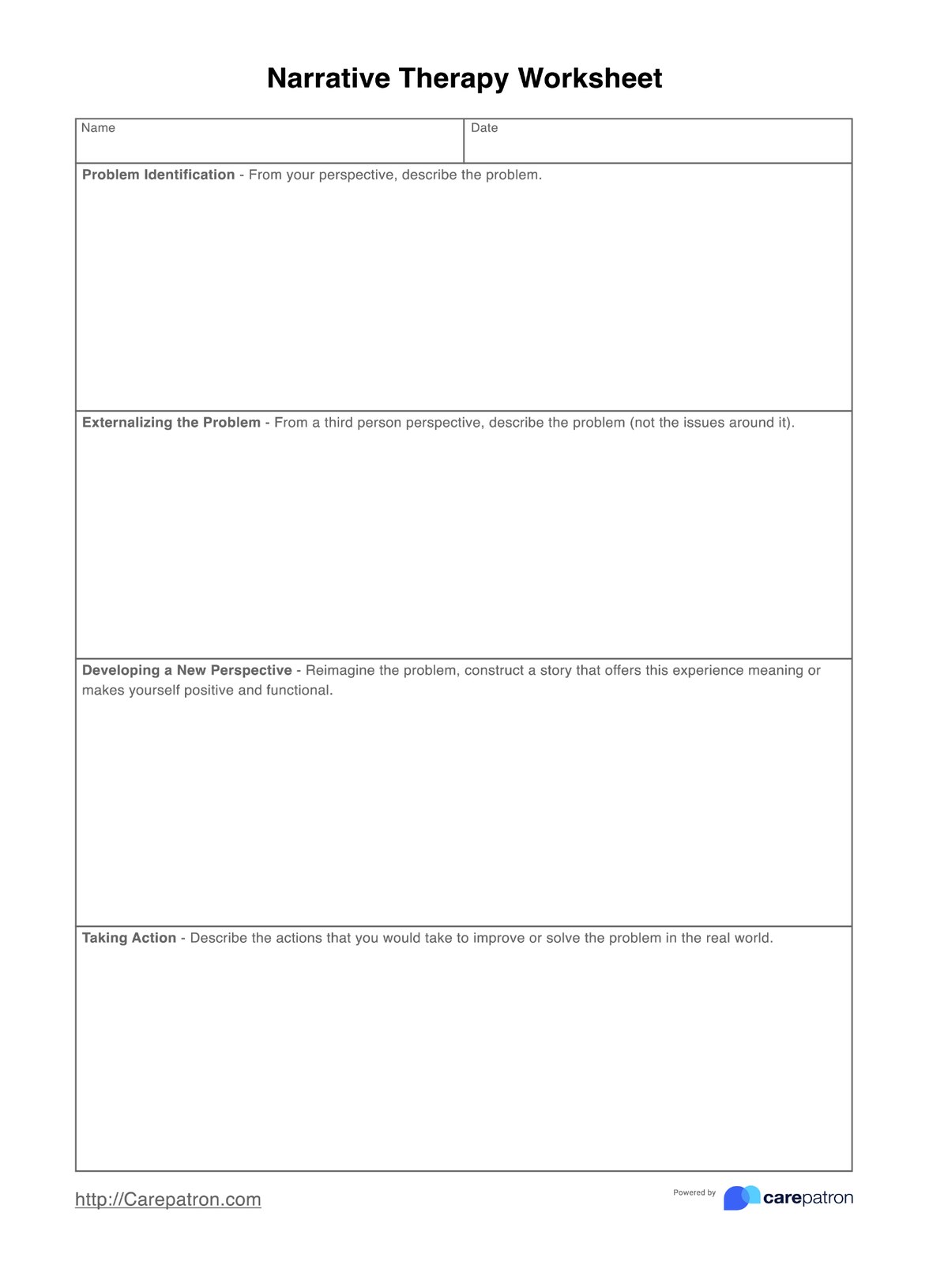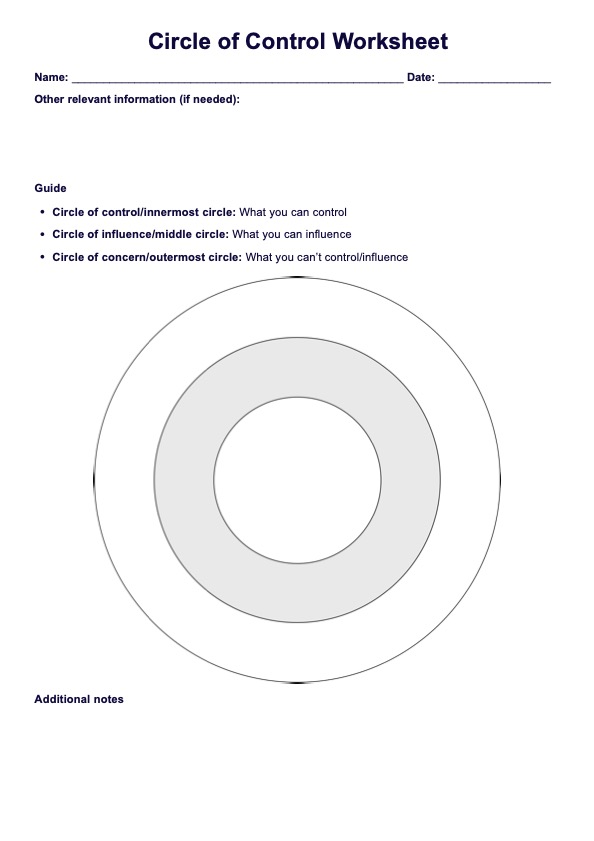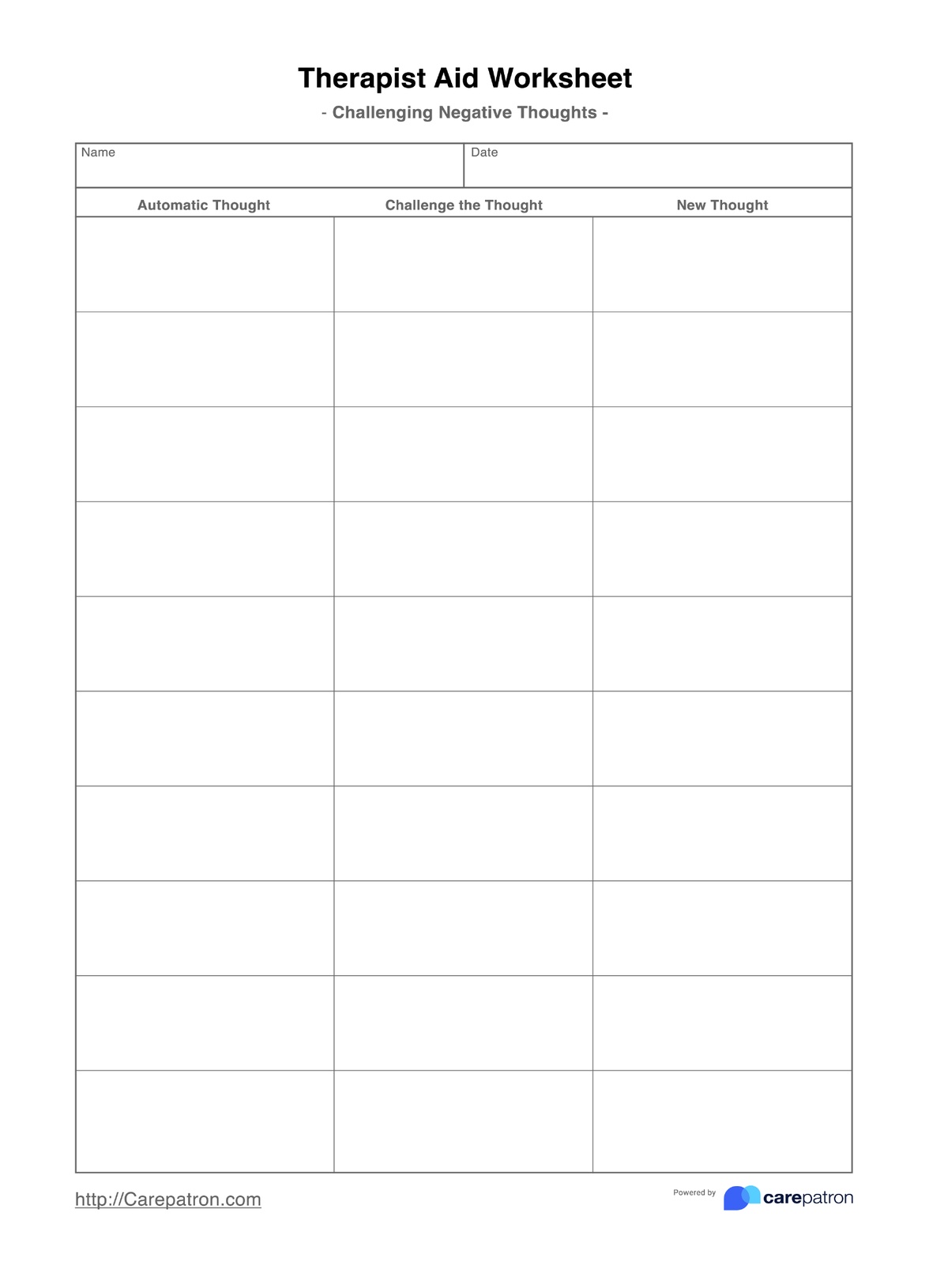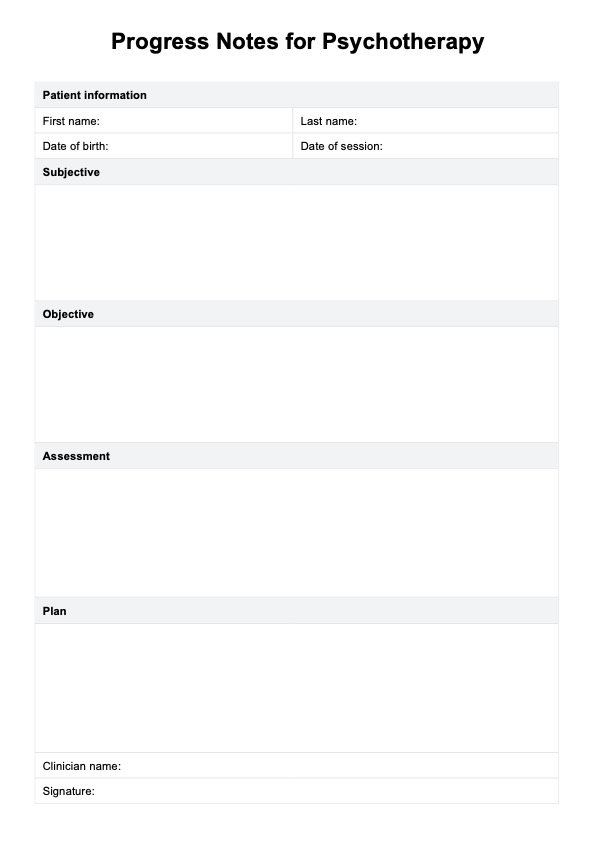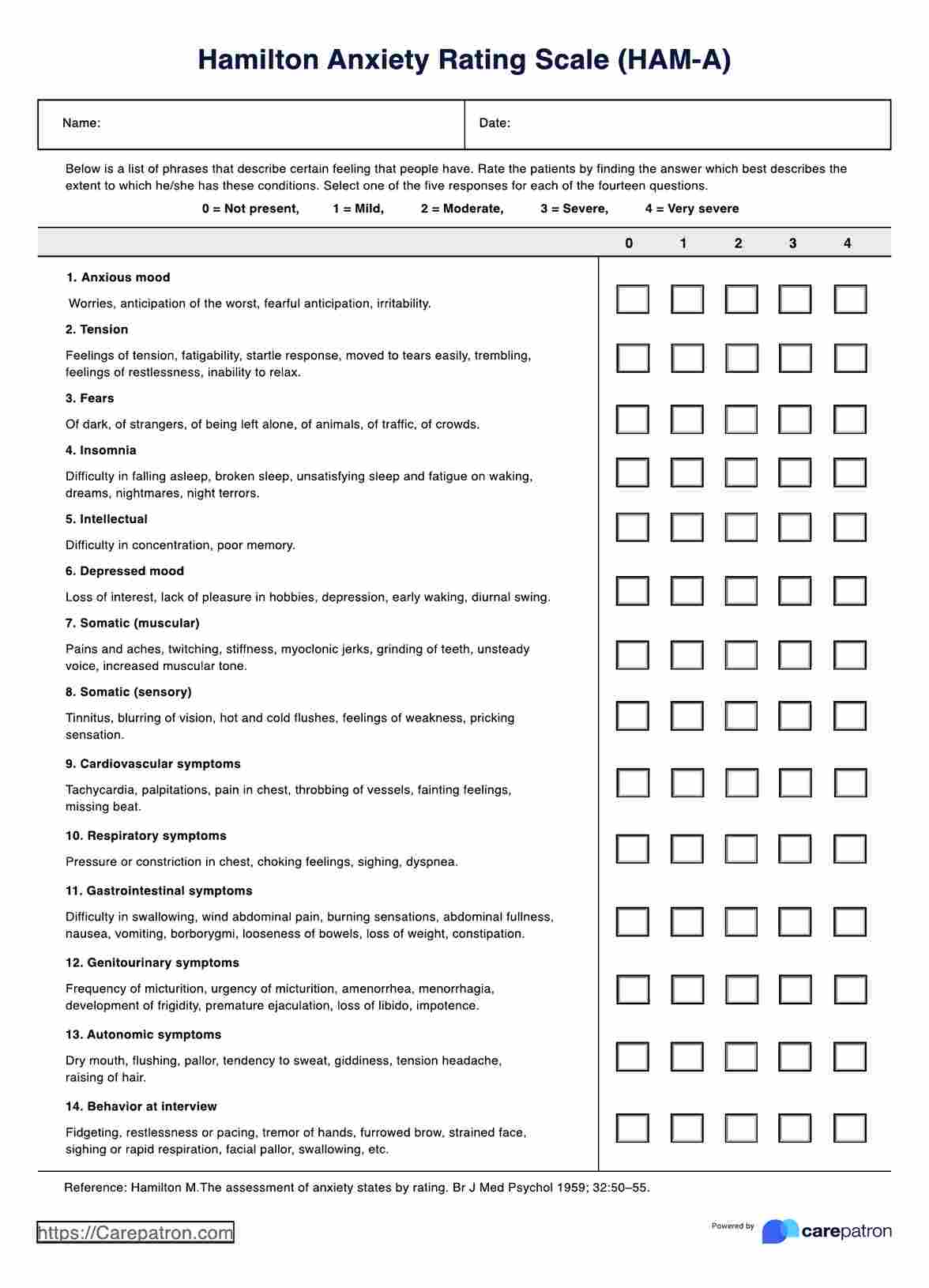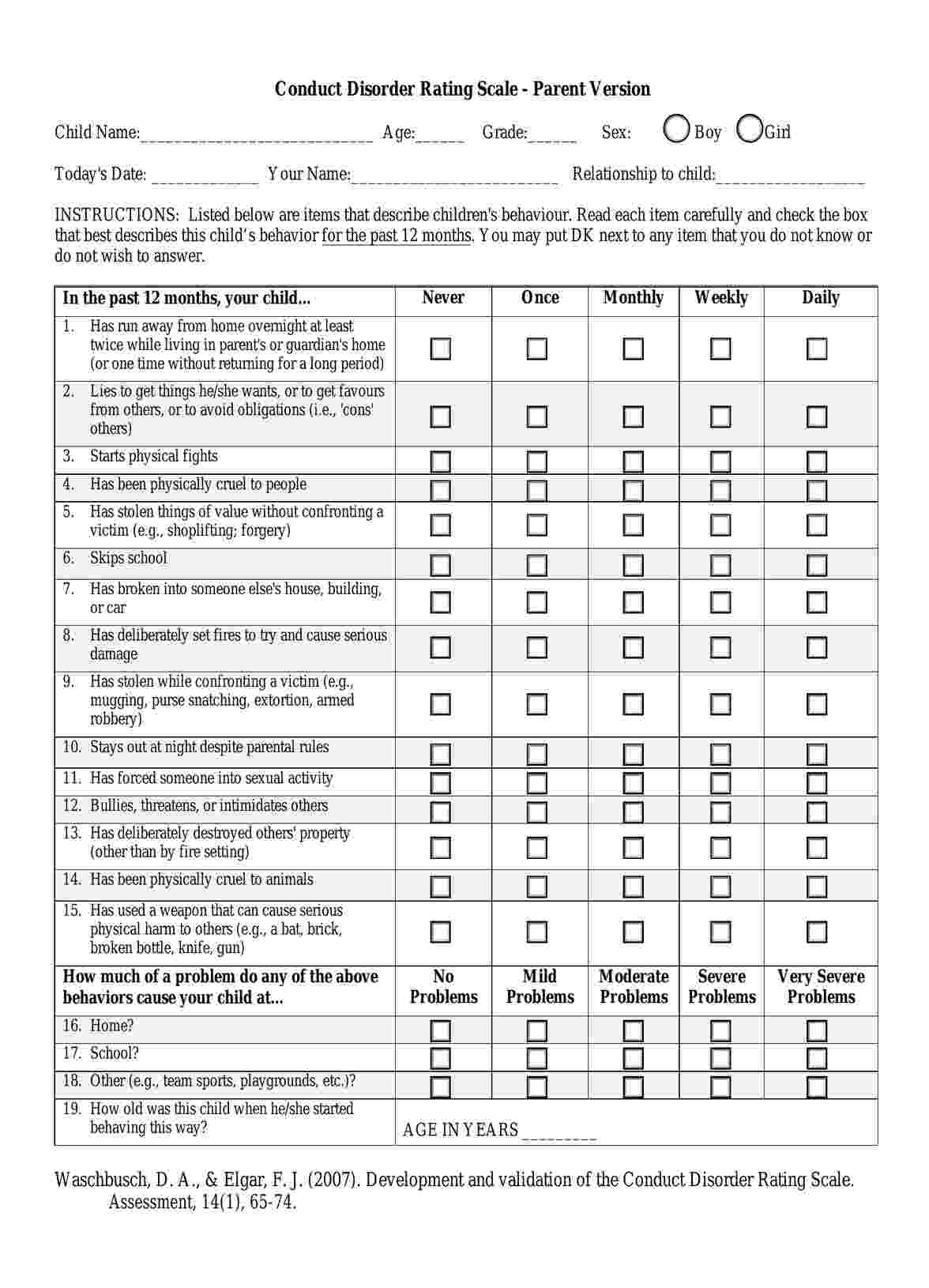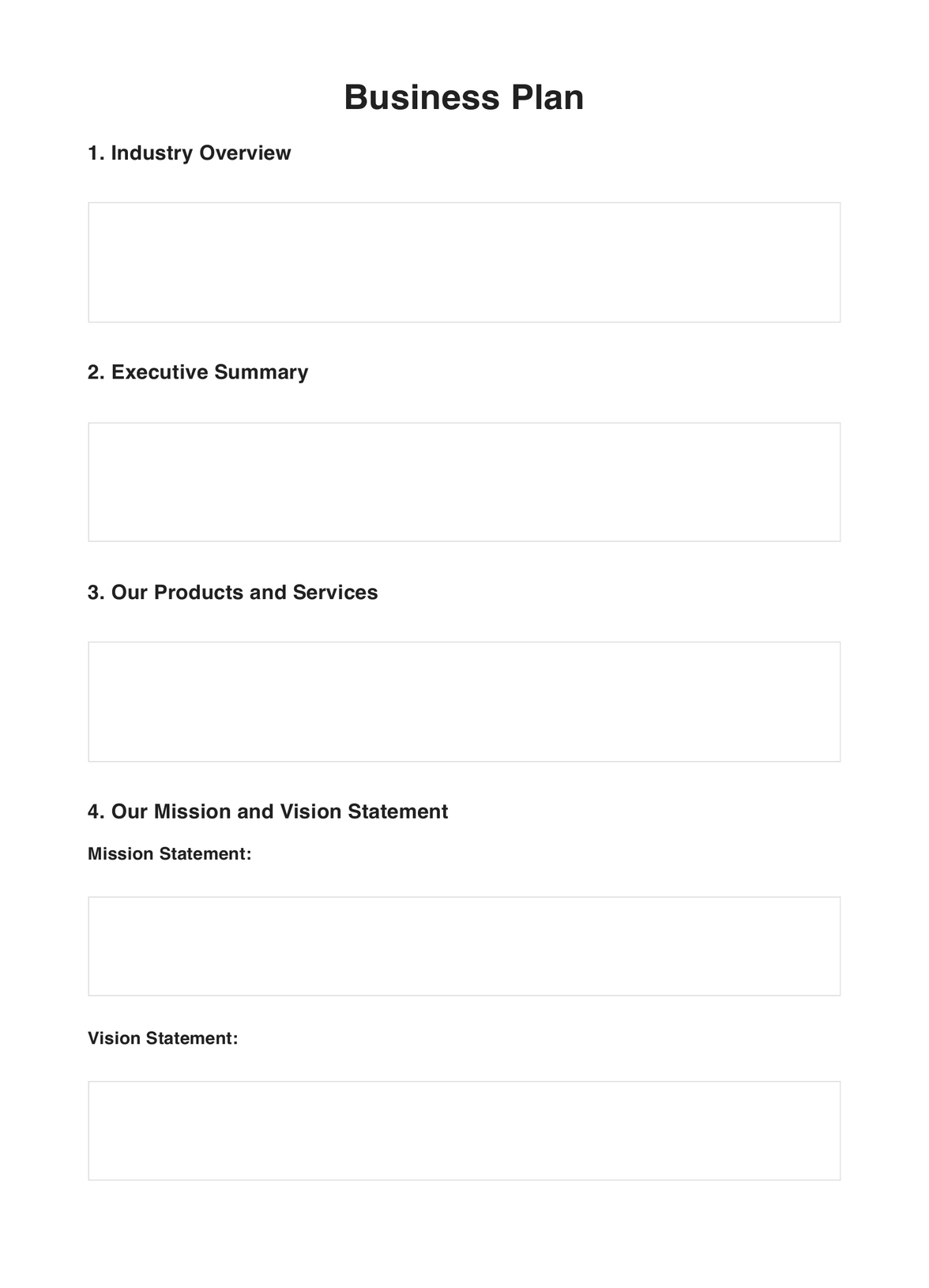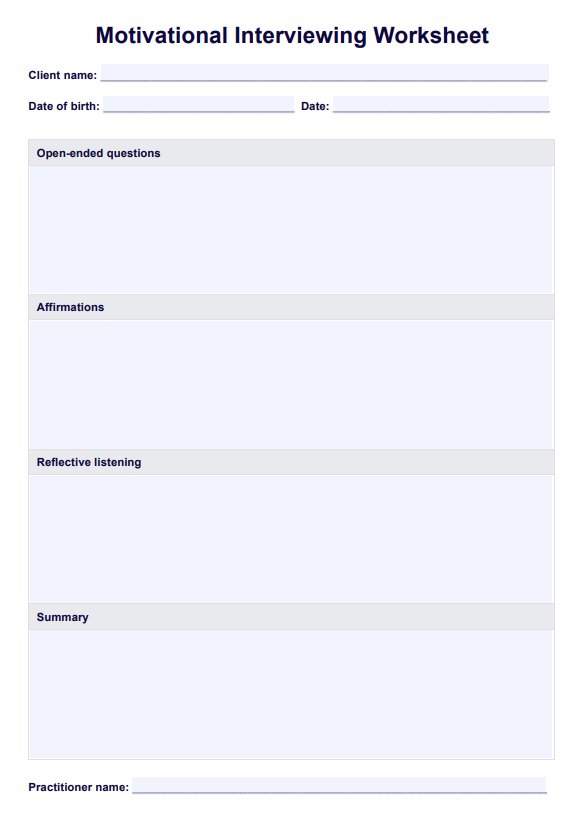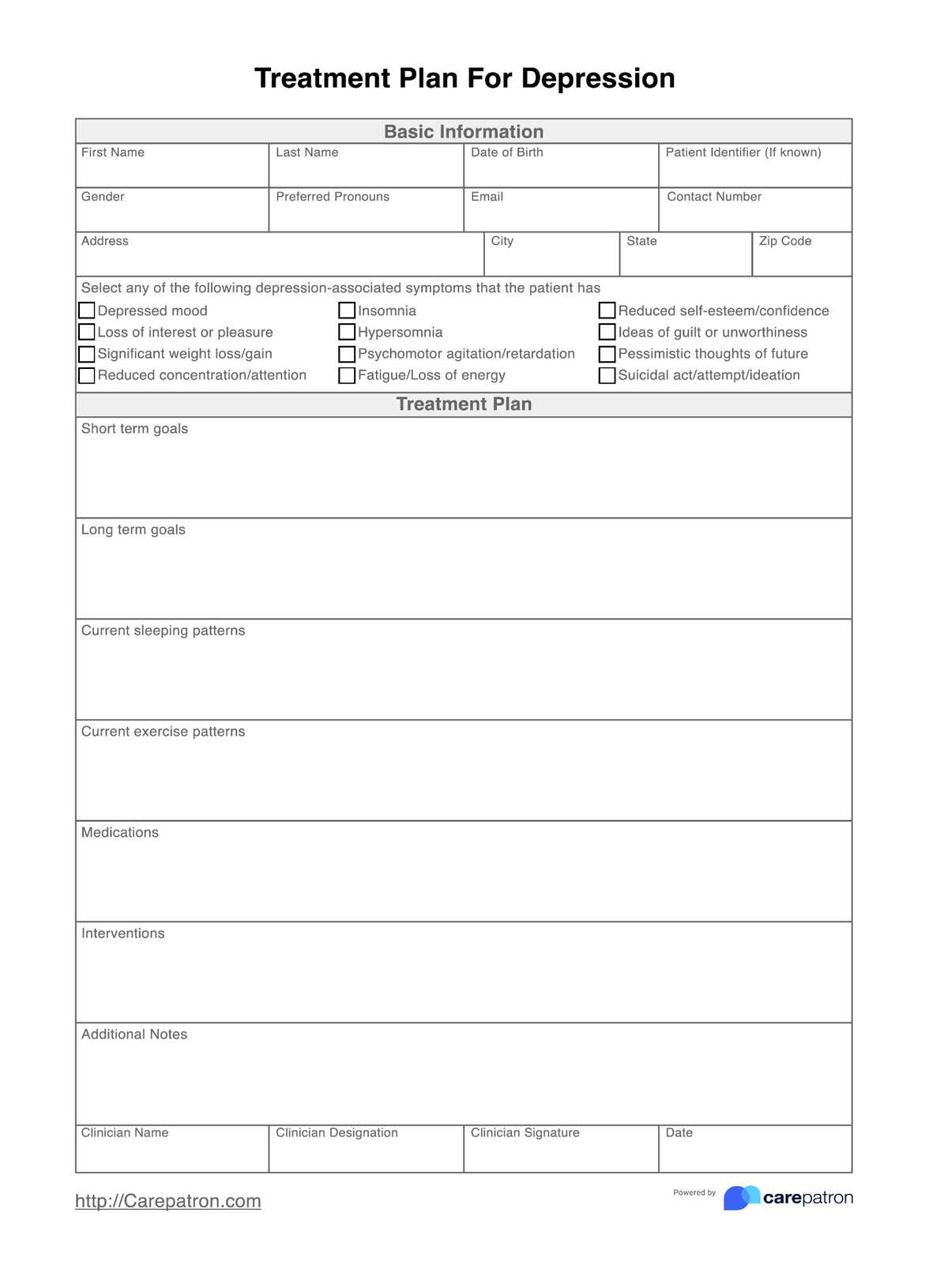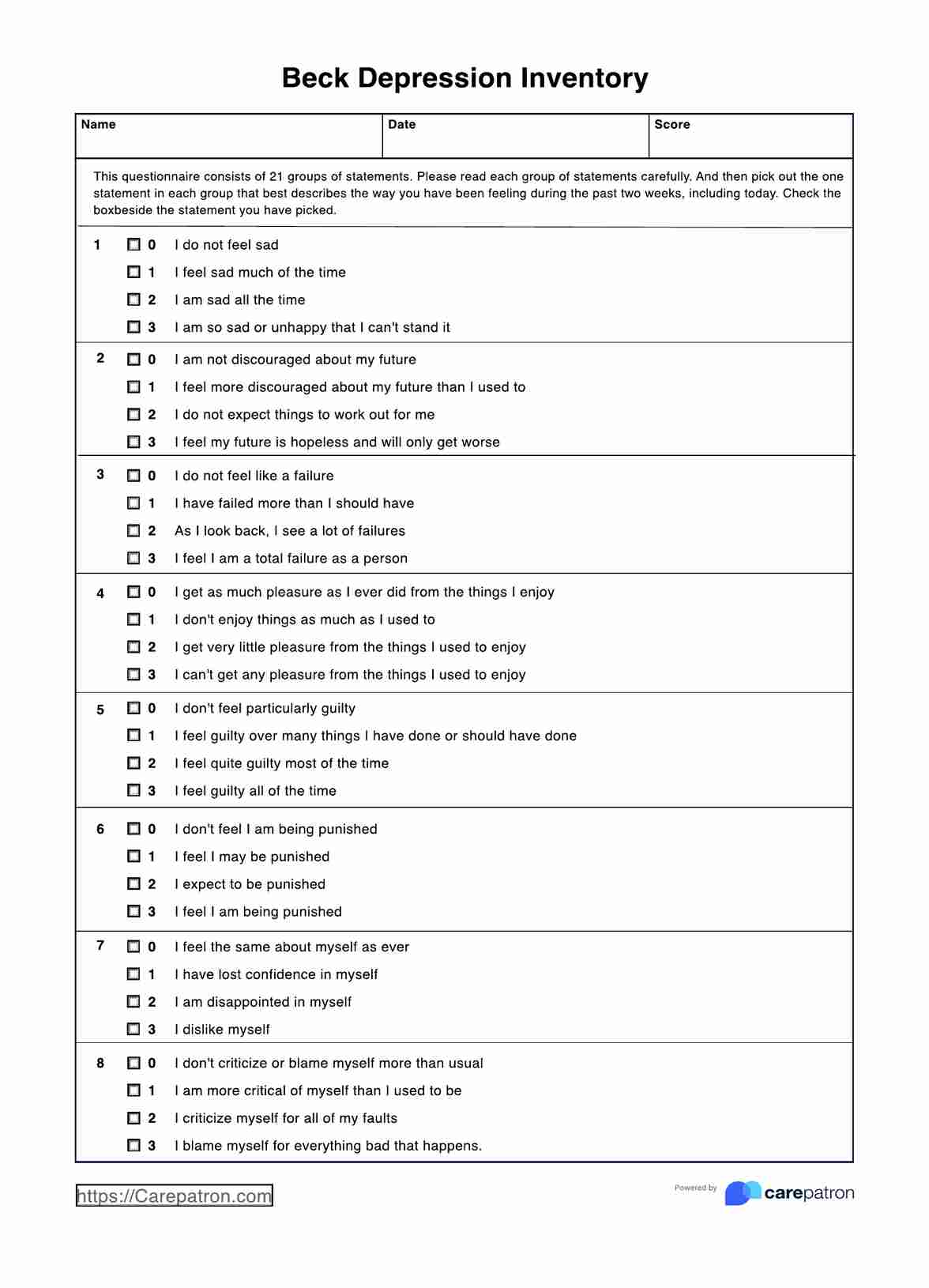Imposter Syndrome Worksheet
Learn how Carepatron's Imposter Syndrome Worksheet PDF can help your clients overcome negative thinking. Download the free template here.


What is imposter syndrome?
Imposter syndrome, also known as the imposter phenomenon, is a psychological pattern in which individuals doubt their accomplishments and fear being accused of fraud. Despite evidence of their competence, they struggle with feelings of inadequacy and fear of being perceived as an imposter.
The term was first coined in 1978 by psychologists Pauline Clance and Suzanne Imes in an article published in the International Journal of Behavioral Science. They described it as a phenomenon that affects high achievers, particularly women. However, it has since been recognized to affect individuals from all backgrounds and professions.
Imposter syndrome is not a formally recognized mental disorder, but it can have a significant impact on an individual's mental health and well-being. It can also affect their performance at work or other areas of life, leading to burnout and overwhelming feelings.
Imposter Syndrome Worksheet Template
Imposter Syndrome Worksheet Example
Recognizing the symptoms of imposter syndrome
Imposter syndrome can manifest in many ways, but some common symptoms include (Clance & Imes,,1985; Tulshyan, 2021):
- Fear of failure and being exposed as a fraud
- Persistent self-doubt and negative self-talk
- Difficulty accepting compliments or praise
- Feeling like you don't deserve your success
- Discounting achievements and attributing them to external factors
- Constantly comparing yourself to others and feeling inadequate
These feelings can lead to anxiety, stress, and even depression if left unaddressed. Moreover, imposter syndrome can prevent individuals from reaching their full potential and hinder career progression.
Signs of imposter syndrome
To help clients cope with imposter syndrome, it is important to recognize the signs and encourage them to seek support. Some common signs of imposter syndrome include:
- Negative self-talk: Pay attention to how your clients speak about themselves - if they constantly put themselves down or doubt their abilities, they may struggle with imposter syndrome.
- Perfectionism: While striving for excellence can be a positive trait, perfectionism that leads to excessive self-criticism and fear of failure may indicate imposter syndrome.
- Downplaying achievements: People with imposter syndrome often downplay their accomplishments or attribute them to luck rather than acknowledging their hard work and skills.
- Fear of failure: Clients with imposter syndrome may constantly worry about making mistakes or being exposed as a fraud.
- Difficulty accepting praise: Individuals with imposter syndrome may feel uncomfortable or even embarrassed when receiving compliments or recognition for their achievements.
Coping with imposter syndrome
As healthcare professionals, it is important to help clients overcome imposter syndrome and replace negative self-talk with more positive thoughts and emotions. Here are some ways to help clients cope with imposter syndrome:
- Encourage feelings of self-belief: Help clients recognize their strengths, skills, and achievements. Encourage them to focus on their successes rather than dwelling on perceived failures.
- Promote a growth mindset: Emphasize that abilities can be developed and improved rather than being fixed traits. This can help reduce feelings of inadequacy and encourage clients to strive for growth and improvement.
- Healthily measure success: Instead of solely focusing on external markers of success such as grades or job titles, encourage clients also to consider their personal growth, relationships, and overall happiness when measuring their success.
- Visualize success: Ask clients to visualize themselves achieving their goals and overcoming challenges. This can help build confidence and reduce self-doubt.
- Use positive affirmations and self-talk: Encourage clients to replace negative thoughts with more positive ones. This can be done through affirmations, practicing gratitude, or simply reframing negative thoughts into more realistic ones.
How to use this worksheet
Carepatron's free Imposter Syndrome Worksheet can help your clients identify and cope with imposter syndrome. Here's how to use it:
Step 1: Download the template
Get a copy of the free worksheet using the link on this page or via the Carepatron app. You can also access it from our resources library.
Step 2: Print or use digitally
You can either print out the worksheet or use it digitally. Some clients prefer writing by hand, while others may find it easier to type their responses.
Step 3: Begin with a discussion
Start by discussing imposter syndrome and how it manifests in different aspects of life. This will help clients understand and identify their own experiences with imposter syndrome.
Step 4: Explore risk factors
Discuss the various risk factors contributing to imposter syndrome, such as low self-esteem, fear of failure, and perfectionism. Encourage clients to reflect on these potential triggers and how they may relate to their own experiences.
Step 5: Client completes the worksheet
Guide the client through each section of the worksheet, allowing them to reflect and write down their thoughts and feelings. Remind them that there are no right or wrong answers, and it's important to be honest with themselves.
Step 6: Encourage positive emotions
Suggest that clients focus on positive emotions and self-belief while completing the worksheet. This can help shift their mindset from negative to positive and encourage personal growth.
Step 7: Review and reflect
Once the worksheet is completed, review it with your client. Discuss any patterns or common emerging themes and help them identify areas where they can replace negative self-talk with positive affirmations.
Step 8: Follow up
It's important to follow up with clients after completing the worksheet. Encourage them to continue reflecting on their thoughts and feelings and offer support as needed.
When to use this worksheet
You can use this free worksheet to help clients reflect on their feelings and thoughts related to imposter syndrome. Here are some scenarios where this worksheet may prove valuable:
During one-on-one consultations
You can use this worksheet during one-on-one consultations with clients experiencing imposter syndrome. It can help them explore their feelings and identify areas for personal growth.
Group therapy sessions
This worksheet can also be used in group therapy sessions to encourage open discussions about imposter syndrome and how it impacts individuals.
Self-reflection exercises
Our worksheet is also a great starting point for clients to reflect on their thoughts and feelings about imposter syndrome. They can use it as a personal tool for self-reflection and growth.
During training or workshops
This worksheet can be utilized during training sessions or workshops for healthcare professionals. It acts as a tool for understanding and combating imposter syndrome, enabling participants to replace negative self-talk with positive affirmations and build self-confidence.
As part of a wellness program
Incorporating this worksheet into a wellness program is another valuable approach. You can use the worksheet to encourage participants to measure success in overcoming fears associated with imposter syndrome, fostering a growth mindset, and enhancing their self-worth over time.
The benefits of using Carepatron's free Imposter Syndrome Worksheet
Here are some of the benefits of using our free worksheet:
100% digital
This template is available in a digital format, making it easily accessible and shareable for you to use with your clients. It's also easy to modify and adapt based on the specific needs of your clients.
Encourages positive emotions
This worksheet encourages self-belief and positivity by guiding clients to replace negative self-talk with affirmations and visualize their success.
Versatile and adaptable
The worksheet can be used in various settings, including individual counseling sessions, group therapy, workshops, or as part of a wellness program. It's also versatile enough for clients from different backgrounds and industries.
Encourages better communication
This worksheet can also lead to better communication between you and your clients. By understanding the risk factors and triggers of imposter syndrome, you can provide your clients with more tailored support and guidance.
Helps curb negative thinking
The Imposter Syndrome Worksheet is an excellent tool to combat negative thinking, a common side effect of imposter syndrome. By encouraging introspection and self-awareness, the worksheet helps identify negative thoughts that may perpetuate the feelings of being an imposter.
References
Clance, P. R., & Imes, S. (1985). The Impostor Phenomenon in High Achieving Women: Dynamics and Therapeutic Intervention. Psychotherapy: Theory, Research & Practice, 22(3), 431-439. https://www.paulineroseclance.com/pdf/ip_high_achieving_women.pdf
Tulshyan, R. (2021). Stop Telling Women They Have Imposter Syndrome. Harvard Business Review. https://hbr.org/2021/02/stop-telling-women-they-have-imposter-syndrome
Commonly asked questions
Absolutely! The worksheet is meant to be tailored to your client's needs. You can add or remove prompts, change the format, and make it your own.
The Imposter Syndrome Worksheet can be used as a tool for personal reflection and growth, or it can be incorporated into your therapy sessions with clients. It is especially beneficial to use with clients who struggle with imposter syndrome or negative thinking patterns.
The worksheet is designed to help individuals identify and challenge their negative self-talk and replace it with more positive and realistic thoughts. By actively addressing imposter syndrome, individuals can better understand themselves and work towards overcoming it.


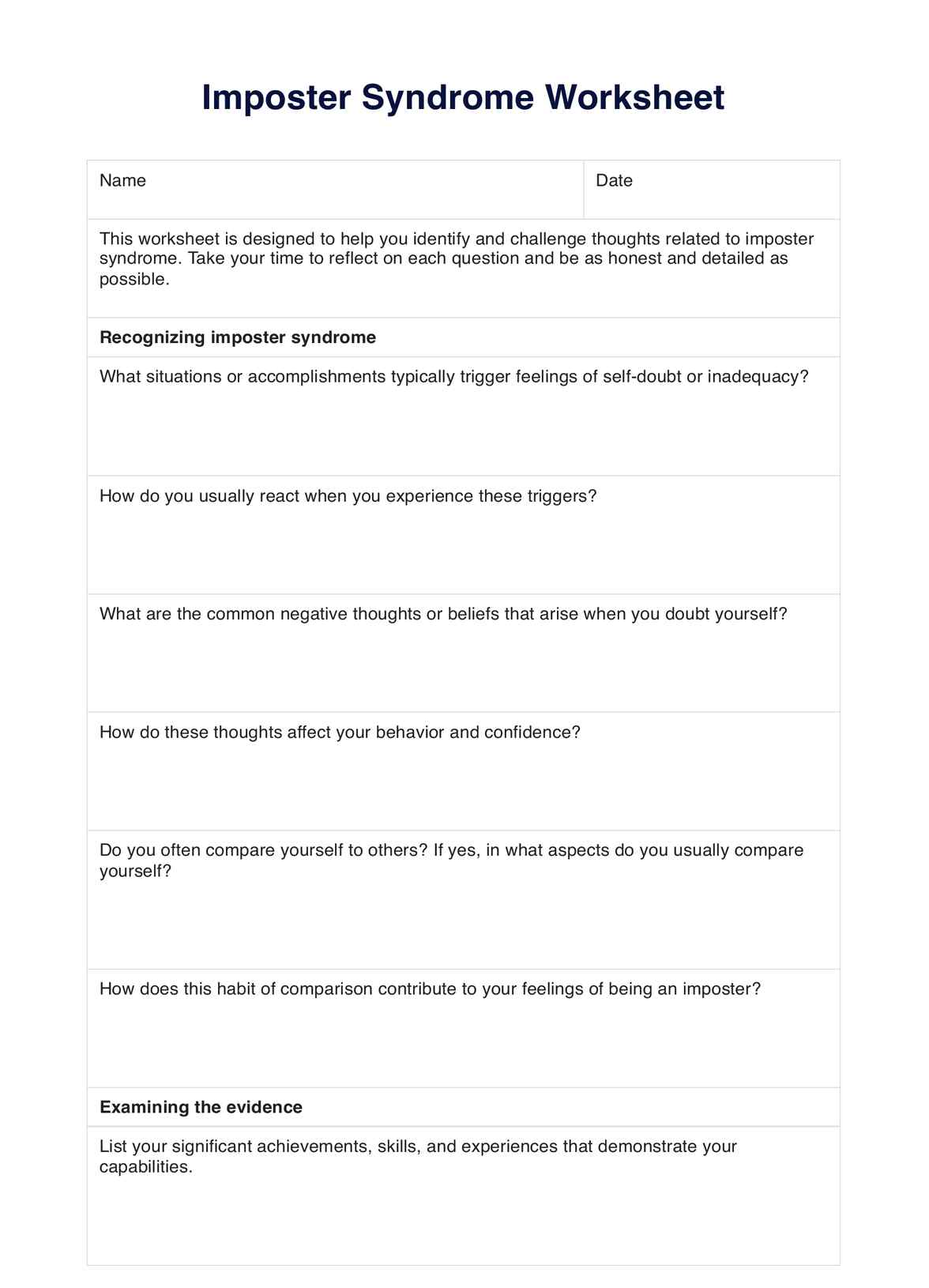
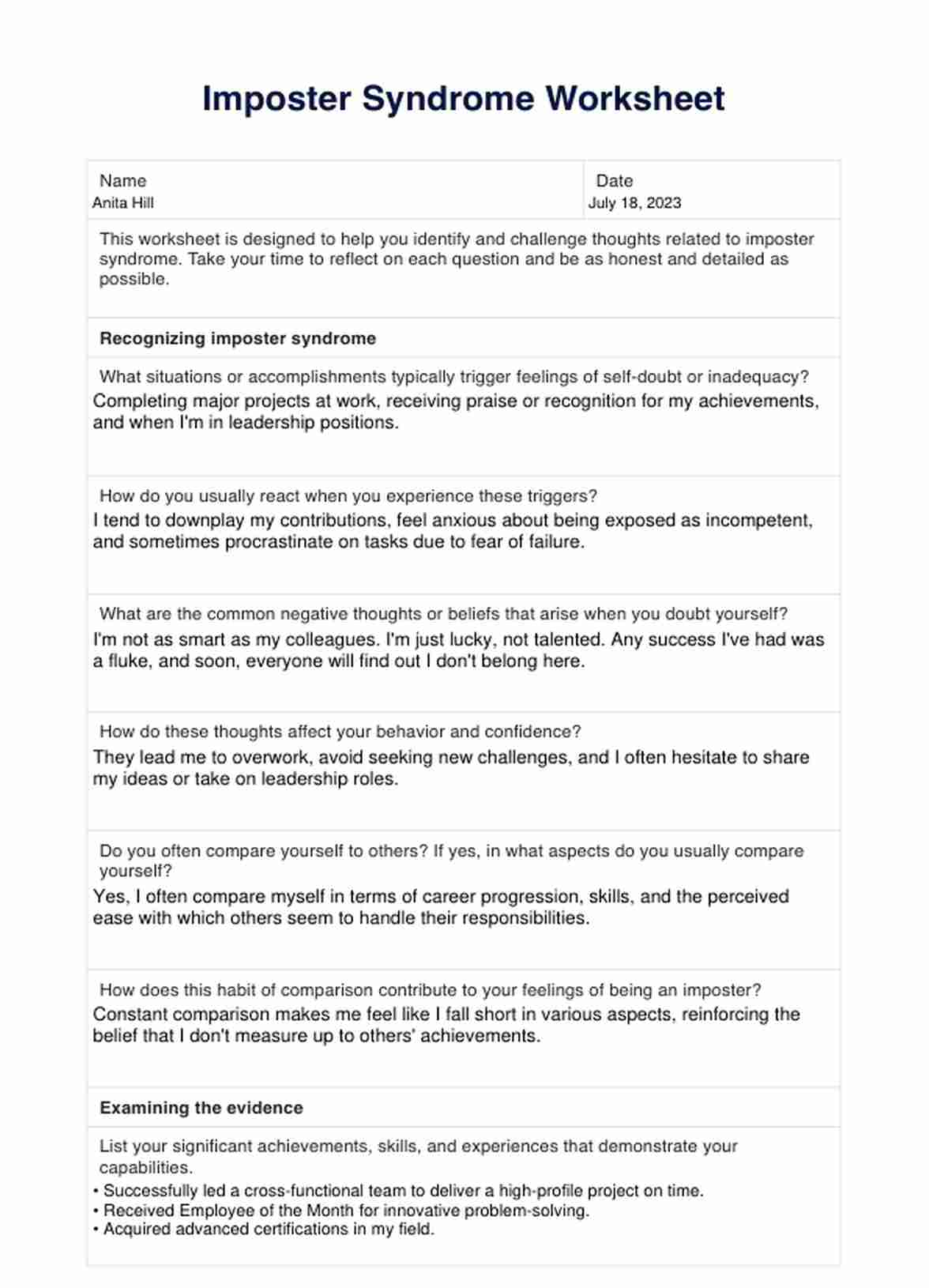

















-template.jpg)



















































































